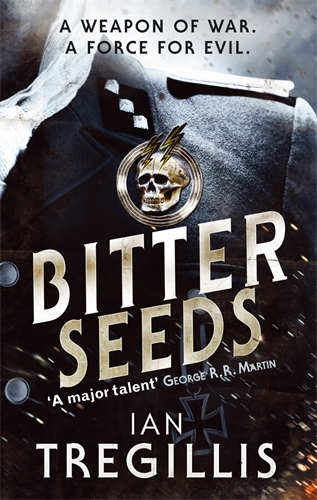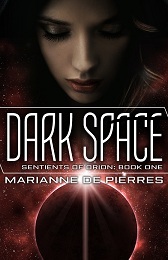 Bitter Seeds is one of those books that is hard to quantify; in the simplest of terms it is alternative-history fiction based around the period encompassing the Spanish Revolution and the Second World War, redolent with ‘what-ifs’ and ‘if-onlys’. But beneath that surface description dwells a novel of complexity and deviation rarely seen in this genre.
Bitter Seeds is one of those books that is hard to quantify; in the simplest of terms it is alternative-history fiction based around the period encompassing the Spanish Revolution and the Second World War, redolent with ‘what-ifs’ and ‘if-onlys’. But beneath that surface description dwells a novel of complexity and deviation rarely seen in this genre.
Structurally speaking, Bitter Seeds is easy to follow. During the course of the book the location and narrative voice jumps between three separate characters that each have a rather broad perspective, but this mass of information has been written so artfully as to not disorient. The opportunity to see the book from both points of view of such an incredible conflict blurs the line that usually separates protagonist from antagonist, providing the reader with an opportunity to decide for themselves where their loyalties lie.
The story itself is infinitely more complex. It sets the scene in rural Germany in the 1920’s where several orphans dislocated from society by the first world war are adopted into the Children’s Home for Human enlightenment – an obvious cover for the inhumane medical experiments perpetrated during the period, introducing several of the important characters of the novel. Crossing the English Channel during the same period, the same day in point of fact, introduces the other two main characters and their origins; one, a poor scrounging child taken on by a disabled ex-pilot and groomed as a member of the Secret Service, the other the child of a wealthy lord introduced by his grandfather into mystic goings-on that are destined to change the course of humanity.
As the novel progresses, it depicts the progress of the war at many of the great turning points, this time though things are substantially different. The Nazi party has an incredible new weapon they describe as the Übermensch -Supermen-, men and women with abilities gifted through the aid of horrific medical experiments. Whereas the United Kingdom have a small group of warlocks; isolated men involved in blood pacts with beings that will only be content when humans are eradicated from existence.
From the beginning, it is difficult to tell who is pulling the strings in this tale. From the outside, it appears as if those calling the shots are the ones in charge, but as the story progresses it becomes more obvious that someone with far more vision is directing the war on both sides. And as every heinous act is perpetrated, by both sides of the Channel, the sheer deviousness of the plan is slowly revealed. What follows is an inevitable game of cat and mouse that is played with entirely different rules.
This is not a tale to be told in one book. Bitter Seeds is only the first book in this triptych, with the future volumes promising to expose more of the desperation and malice inherent in such a topic. And considering the high quality of the storytelling, the complexity of narrative, and general ‘can’t put it down’ nature of the book, it’s one to get stuck into just so you can get to the end. Be warned though; there is plenty of content that is easily described as distasteful, but the context makes every nuance and horrific element crucial to the story.





































